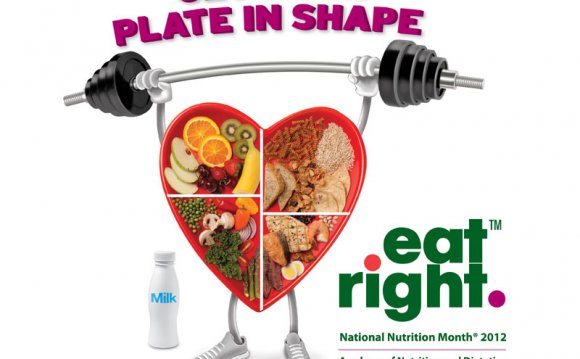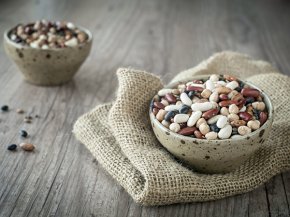
 March is National Nutrition Month, when the Academy of Nutrition and Dietetics reminds everyone to return to the basics of healthy eating. It is also the time of year when the Academy celebrates expertise of registered dietitian nutritionists as the food and nutrition experts.
March is National Nutrition Month, when the Academy of Nutrition and Dietetics reminds everyone to return to the basics of healthy eating. It is also the time of year when the Academy celebrates expertise of registered dietitian nutritionists as the food and nutrition experts.
You don't have to be a vegetarian or vegan to reap the health benefits of plant-based eating. "Going meatless even one day per week may reduce your risk for developing conditions such as cancer, heart disease, diabetes and obesity, " says Vandana Sheth, RDN, CDE, spokesperson for the Academy of Nutrition and Dietetics.
As nutrition experts encourage eating more plant-based foods, consumers often question whether they are getting enough protein. Not only is it possible to get enough protein from plant sources, there are other nutrition benefits as well, including a greater intake of fiber, potassium and disease-fighting phytonutrients, and a lower intake of saturated fat and cholesterol.
Here are four tips for incorporating plant-based proteins into your diet.
Focus on Plant Proteins
Beans and lentils are cost-effective protein sources that come in many varieties and are easy to cook. According to Sheth, beans and lentils not only provide protein, but are an excellent source of fiber, vitamins and minerals, while being low in fat and having no cholesterol. Buy them dried, canned, frozen or fresh.
Cookbook author Jill Nussinow, MS, RD, touts soy products such as tempeh and tofu as versatile whole food proteins. "I love tofu because you can do pretty much anything with it, from breakfast to dessert." Tofu comes in a variety of textures, from soft to firm, and is often used in "cream" soups, stir-fries and non-dairy desserts.
Tempeh — a fermented soybean product — is delicious marinated and grilled, as a replacement for bacon in a "B"LT, or chicken in mock chicken salad.
While not plant-based, eggs and dairy products are high-quality protein sources that some vegetarians may include in their diet. However, they also contain saturated fat and cholesterol and should be eaten in quantities that meet daily limits for these nutrients. Opt for low-fat or fat-free milk and yogurt, use cheese to flavor rather than smother dishes, and aim for eating no more than one egg per day on average.
Look Beyond the Obvious
"All foods but fruit and fat contain protein. So if you eat a wide variety of foods throughout the day, it is very likely you will get enough protein, " says Nussinow. For example, 1 cup of cooked spinach has about 5 grams of protein and 1 cup of cooked broccoli is about 4 grams.
This is a significant amount considering the Recommended Daily Allowance for protein is 56 grams a day for adult men and 46 grams a day for adult women.
And don't forget grains, nuts and seeds. Their versatility and many varieties make them great options for boosting protein content to meals and snacks all day long. For example, ½ cup of cooked quinoa contributes about 4 grams of protein, while 2 tablespoons of peanut butter offer 8 grams.
Choose Your Veggie Burger with Care
A meat analog or substitute is a manufactured food product made to mimic the look and taste of common meat products such as veggie burgers.
Because these products tend to be heavily processed and higher in fat, sodium and sugar than plant proteins, Sheth and Nussinow recommend saving consumption of meat analogs for special occasions and reading labels carefully.
Have Food Sensitivities or Intolerances? Work with a Registered Dietitian Nutritionist
Gluten sensitivity and allergies to soy, milk, eggs, nuts and peanuts makes it harder to navigate plant protein options. Sheth recommends working with a registered dietitian nutritionist specializing in food allergies and sensitivities to tailor a safe eating plan that ensures all nutritional needs are being met.
INTERESTING VIDEO












